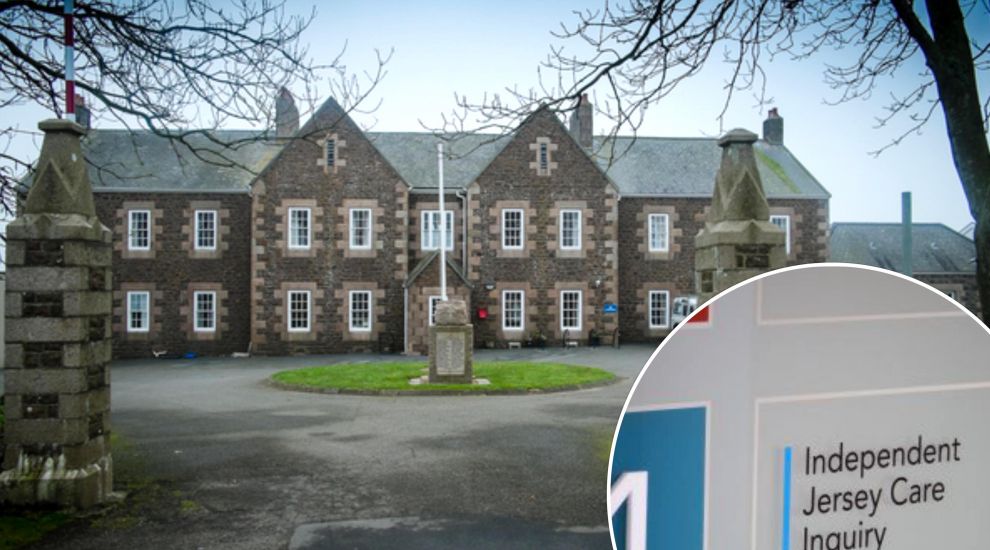

Survivors of historic child abuse in Jersey will today learn the findings of a three-year investigation into the Island’s care and fostering services.
Launched in 2014, the Independent Jersey Care Inquiry has taken the testimony of hundreds of witnesses across the Island, including victims, members of the Island’s care staff, past and present politicians and members of the Police force. Here's what you need to know ahead of its publication today.
The Inquiry - chaired by Francis Oldham QC - came following revelations of abuse at the former Haut de la Garenne Children’s home in 2007, prompting the widely-criticised ‘Operation Rectangle’ investigation, which saw a fragment of coconut shell misinterpreted as the remains of a child.
In the following years, a number of high-profile cases came to light, including a former couple who worked at Haut de La Garenne who were convicted in 2010 for child abuse during the 70s and 80s, and a former child resident of the care home who was said to have indecently assaulted children under 10.
Allegations of cover-up also abounded, with claims that the Island’s reputation was being put before the rights of victims.
The States agreed in 2011 that an independent inquiry should be commissioned to investigate, with the inquiry officially underway by July 2014.
Video: Behind the scenes in the Care Inquiry Panel room. (Independent Jersey Care Inquiry)
The expert Panel, who were expected to adopt a consistent impartial approach, were given a mandate to investigate the running of Jersey’s children’s homes and fostering services from the post-war period up to the present day, with a particular focus on the period after 1960, as well as political oversight of these services. They are also expected to set out what lessons can be for the current system of care services in Jersey for children and young people in the Island.
After a total of 149 days spent listening to evidence, a conclusion was reached on 22 June last year.
How much has been spent on the report?
More than £20 million has so far been spent on the investigation, according to most recent figures. £14 million of that was spent on legal fees alone.
The report - expected to be hundreds, if not thousands of pages long - will be released online today at 15:00. The Panel have refused to answer questions on their findings, and only one media outlet, the BBC, will be present for the Chair's statement.
Chief Minister Ian Gorst will provide a statement this afternoon, while the findings will be discussed in further depth during a special ’in-committee’ States sitting - one which doesn’t follow the usual rules of debate - later this week.
Other politicians from Education, Home Affairs and Health will also be expected to make comments on the review.
Video: Frances Oldham QC, the Panel Chair, announces the close of the Inquiry.
Both politicians, the media and members of the public have been kept completely in the dark about the content of the report and so it is difficult to say exactly what will be in it, or even how long it will be in total.
Top child abuse and family lawyer Alan Collins, wrote in a blog: "I am hoping that the Independent Jersey Care Inquiry will address in its report the past but also the present and very importantly the future too.
"I would like to read what the Inquiry believes the relevance of societal attitudes is on the issue of child protection? Some felt that it was not given the standing it warranted and so put vulnerable children at risk. If it’s an on-going problem then we need to know what is going to be done to put this right?
"I would also expect to read the Inquiry’s opinion on the extent that government in its broadest sense has either aided or hindered child protection. Further I would want to see what recommendations have been made to ensure Jersey has a child protection system in place fit for the 21st century."
Speaking on behalf of campaigners, Deputy Montfort Tadier expressed hope that the Care Inquiry report would signal the end of the ‘Jersey Way’ - a term that abounded throughout the Inquiry:
“Many witnesses spoke of the ‘Jersey Way’; by this they meant a culture in which reporting abuse was difficult, where they weren’t listened to, where whistleblowing was almost impossible, where the Island’s reputation came before the safeguarding of the vulnerable and where complacency was the norm," he said.
"There are still examples of some of these failures today: some areas of public sector and institutions remain hostile to criticism. Where this culture exists, it must be replaced by an active pursuit of honesty, openness, and accountability. Where problems exist, staff, agencies and citizens must feel able to raise valid concerns knowing that effective action will be taken in a timely manner. This will, no doubt, also mean better resourcing and investment in areas such as social care, education and training. We must also be prepared to reform our institutions where they are no longer fit for purpose and tradition can no longer be an excuse for not adopting modern best practice.”
Comments
Comments on this story express the views of the commentator only, not Bailiwick Publishing. We are unable to guarantee the accuracy of any of those comments.